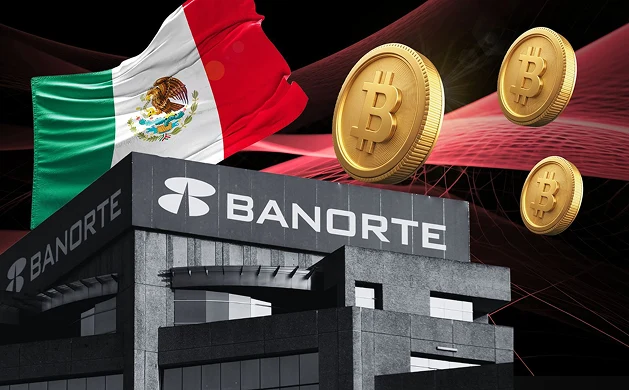Binance vs KuCoin: Features, Fees & Security
.webp)
Summary: Binance is the largest exchange worldwide, serving 210 million users across 100 countries. It can be used in over 40 languages and accepts deposits in 70+ fiat currencies. KuCoin, while smaller, has grown in popularity thanks to its unique altcoin offerings, competitive fees, and access to DeFi features. It has 30 million users across 190 countries.
Both exchanges serve international audiences, but they differ in several key areas, including their range of cryptocurrencies, supported deposit methods, user interface, and regulatory approach.
Binance provides a better trading experience compared to KuCoin, with its robust liquidity, global regulatory compliance, advanced security measures, and a broader range of deposit currencies.
Available Assets
350+ Cryptos via Spot, Futures & Options
Trading Fees
0.1% Spot Fee & 0.02% Maker and 0.06% Taker for Futures
Security
Regulated with an Audited 1:1 Proof-of-Reserves
Binance vs KuCoin Overview
Binance offers a variety of 350 coins to trade across spot, futures and options markets. Founded in 2017 by Changpeng Zhao, it’s known for its unique features, low fees, BNB Chain ecosystem, and widespread availability. While the exchange is hugely popular, it’s faced some regulatory challenges and has been working to tighten compliance in different regions.
KuCoin is a global crypto exchange that’s popular for its wide range of 700 digital assets for spot and derivatives trading. It also has services like staking, borrowing and lending. Launched in 2017, it provides access to many smaller altcoins you won’t find on bigger platforms. KuCoin’s token, KCS, gives users perks like fee discounts and rewards.
For a detailed comparison of the specific features each platform has to offer, see the table below.
Binance vs KuCoin Products
Both exchanges go beyond basic crypto trading, offering a range of features like staking, lending, and access to DeFi products. Here's a breakdown of what each platform brings to the table.
Binance Features
As the largest crypto exchange globally, Binance offers an impressive suite of tools and services, including:
- Diverse Trading Options: Binance supports spot, margin, and futures trading with up to 100x leverage, appealing to traders who want more flexibility and the ability to maximize positions.
- NFT Marketplace: The NFT marketplace offers a place for buying, selling, and trading thousands of NFTs, with features like cross-chain listings, live data on floor prices and trading volumes,
- Staking Services: The earn feature allows users to grow their crypto through flexible and locked savings products, staking, and auto-investment options, offering competitive returns while providing various risk and reward options based on user preferences.
- Binance Loans: This feature allows users to borrow various coins by using their existing crypto holdings as collateral, offering flexible loan terms and competitive interest rates while enabling users to maintain their asset exposure without having to sell.
- Trading Bots: Binance offers trading bots that automate strategies, helping users make trades even without active management.
- Binance Card: The Binance Visa card allows users to spend crypto directly at millions of merchants globally, converting it to fiat at the point of sale for easy, everyday use.
- Launchpad: Binance's Launchpad gives users early access to new crypto projects, allowing them to participate in token sales before they hit the market.

KuCoin Features
KuCoin also offers a broad range of trading and investment services for its users, including:
- Varied Trading Options: It supports spot, margin, and futures trading with up to 100x leverage, providing options for traders at different experience levels.
- KCS Token: KuCoin’s native token, KCS, offers users benefits such as reduced trading fees, staking rewards, and the opportunity to earn a share of the platform's daily revenue through its unique profit-sharing model.
- Crypto Lending: The loan feature allows users to lend or borrow over 60 tokens, offering flexible terms and competitive interest rates, enabling users to earn interest on idle assets or access liquidity.
- Institutional Tools: The institutional services provide high-performance solutions for professional traders and VIP users, offering benefits like discounted fees, API-based trading, priority access to products, and personalized account management.
- KuCoin Wallet: The platform offers a native wallet that integrates with DeFi applications, making it easy for users to interact with decentralized protocols.
- Staking & Yield Products: It offers flexible and fixed staking options, along with DeFi yield farming opportunities providing up to 340% APY.
- KuCoin Spotlight: The Spotlight feature helps users gain early access to promising blockchain projects through token sales, allowing participants to invest in emerging technologies before they launch on public markets.

Binance vs Kucoin Futures Trading
Binance and KuCoin are both popular options for futures trading, but they differ slightly. Binance offers around 360 futures contracts with leverage up to 100x, which is perfect for those looking to trade a wide variety of assets with higher risk tolerance. Its 99.99% uptime ensures a reliable trading experience, and you can take advantage of tools like trading bots and copy trading.
KuCoin, with 312 contracts and leverage up to 125x, might have fewer options but has features like futures grid bots, great liquidity, and generally lower fees. Both exchanges offer a strong futures trading experience, but Binance is better for variety, while KuCoin has lower fees and higher leverage options.

Binance vs KuCoin Security
Binance operates under multiple global licenses, and all its funds are fully backed 1:1, with most assets stored in cold wallets. They also offer features like two-factor authentication (2FA) and withdrawal whitelisting. Recently relocated to Dubai, it collaborates closely with the Abu Dhabi Global Market (ADGM), plus other regulators, including AMF, OAM, AUSTRAC and more.
KuCoin, while not as regulated, has a strong reputation, and the majority of its assets are stored in cold wallets. They also offer essential security tools like 2FA and anti-phishing protections, plus a Safeguard Program that compensates users in case of breaches. Unfortunately, in 2020, it suffered a significant security breach in which $281 million of user funds were stolen.

Binance vs KuCoin Fees
When it comes to choosing between Binance and KuCoin, fees are an important factor. Let’s take a closer look at how these two exchanges compare in terms of fees and VIP perks.
Binance Fees
Binance is known for its competitive fees, offering users a fee structure with extra benefits for VIP members and BNB holders. Here’s a breakdown:
- Spot Trading Fees: Standard spot trading fees are 0.1% for both makers and takers, but users can reduce fees to 0.075% by paying with Binance’s native token, BNB. VIP users, depending on their level, can get fees as low as 0.012% for makers and 0.024% for takers.
- Futures Trading Maker Fees: Start at 0.02% and can drop to 0.012% for high VIP users.
- Futures Trading Taker Fees: Begin at 0.04% and can go as low as 0.018% for high VIP members.
KuCoin Fees
KuCoin also offers a competitive fee structure, with additional discounts for those holding KCS. Below is a brief overview:
- Spot Trading Fees: Start at 0.1% for both makers and takers, but by holding KCS, users can reduce fees by 20%, lowering them to 0.08%. VIP members can enjoy even lower fees, with the highest levels dropping fees to 0.0125% for makers and 0.0336% for takers.
- Futures Trading Maker Fees: Start at 0.02% and can drop to 0% for top VIP users.
- Futures Trading Taker Fees: Range from 0.06% down to 0.03%, depending on VIP level and trading volume.
Both exchanges offer low fee structures, but Binance gives an edge to high-volume traders with its lower futures fees, while KuCoin rewards KCS holders with additional discounts.
Bottom Line
In conclusion, both Binance and KuCoin bring a lot to the table. Binance is great if you want a wide range of coins, global regulatory compliance, and lower fees for high-volume trading. KuCoin is better for its access to lesser-known altcoins, DeFi tools, and savings through KCS. The right choice depends on whether you want more features and compliance or lower costs and altcoin variety.
%25201%2520(1).webp)
Written by
Emily Shin
Research Analyst
Emily is passionate about Web 3 and has dedicated her writing to exploring decentralized finance, NFTs, GameFi, and the broader crypto culture. She excels at breaking down the complexities of these cutting-edge technologies, providing readers with clear and insightful explanations of their transformative power.


.webp)
.webp)





